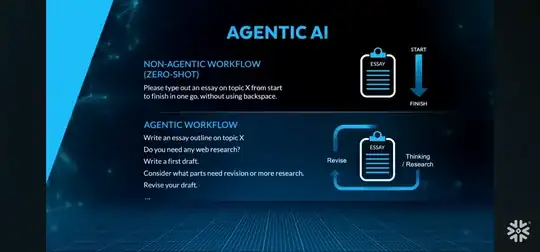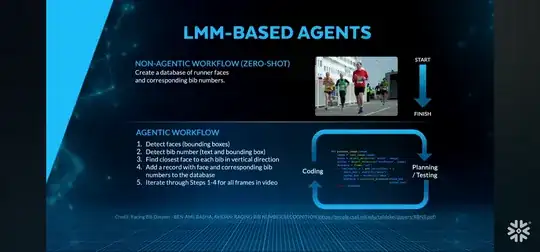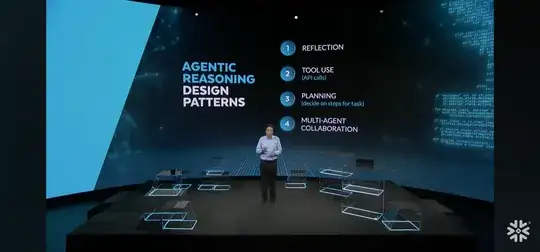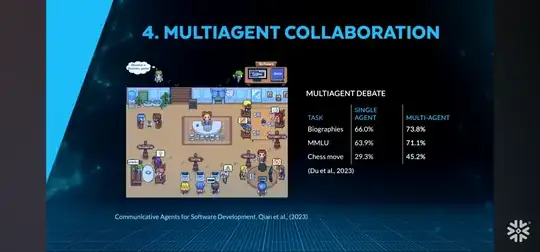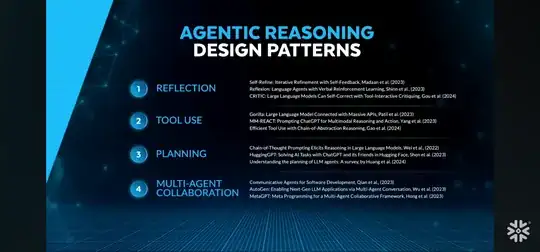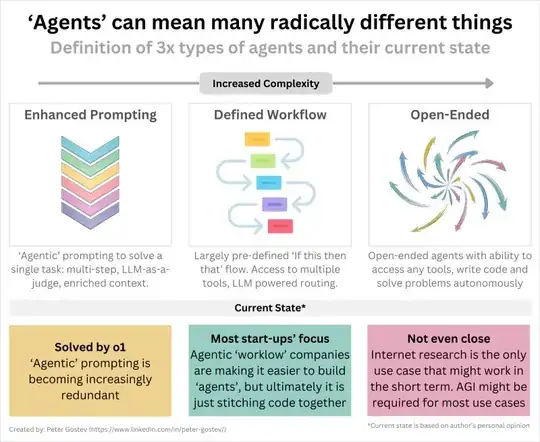Agent
The other answer defines an agent as a policy (as it's defined in reinforcement learning). However, although this definition is fine for most current purposes, given that currently agents are mainly used to solve video games, in the real world, an intelligent agent will also need to have a body, which Russell and Norvig call an architecture (section 2.4 of the 3rd edition of Artificial Intelligence: A Modern Approach, page 46), which should not be confused with an architecture of a model or neural network, but it's the computing device that contains the physical sensors and actuators for the agent to sense and act on the environment, respectively. So, to be more general, the agent is defined as follows
agent = body + policy (brain)
where the policy is what Russell and Norvig call the agent program, which is an implementation of the agent function.
Alternatively, it can be defined as follows
An agent is anything that can be viewed as perceiving its environment through sensors and acting upon that environment through actuators.
This is just another definition given by Russell and Norvig, which I also report in this answer, where I describe different types of agents. Note that these definitions are equivalent. However, in the first one, we just emphasize that we need some means to "think" (brain) and some means to "behave" (body).
These definitions are quite general, so I think people should use them, although, as I said above, sometimes people refer to an agent as just the policy.
Model
In this answer, I describe what a model is or what I like to think a model is, and how it is different from a function.
In AI, a model can refer to different but somehow related concepts.
For example, in reinforcement learning, a model typically refers to $p(s', r \mid s, a)$, i.e. the joint probability distribution over the next state $s'$ and reward $r$, given the current state $s$ and action $a$ taken in $s$.
In deep learning, a model typically refers to a neural network, which can be used to compute (or model) different functions. For example, a neural network can be used to compute/represent/model a policy, so, in this case, there would be no actual difference between a model and an agent (if defined as a policy, without a body). However, conceptually, at a higher-level, these would still be different (in the same way that biological neural networks are different from the brain).
More generally, in machine learning, a model typically refers to a system that can be changed to compute some function. Examples of models are decision trees, neural networks, linear regression models, etc. So, as I also state in the other answer, I like to think of a model as a set of functions, so, in this sense, a model would be a hypothesis class in computational learning theory. This definition is roughly consistent with $p(s', r \mid s, a)$, which can also be thought of as a (possibly infinite) set of functions, but note that a probability distribution is not exactly a set of functions.
In the context of knowledge bases, a model is an assignment to the variables, which represents a "possible world". See section 7.3, page 240, of the cited book.
There are possible other uses of the word model (both in the context of AI, e.g. in the context of planning, there's often the idea of a conceptual model, which is similar to an MDP in RL, and in other areas), but the definitions given above should be more or less widely applicable in their contexts.
What is the difference between an agent and a model?
Given that there are different possible definitions of a model depending on the context, it's not easy to briefly state what the difference between the two is.
So, here's the difference in the context of RL (and you can now find out the differences in other contexts by using the different definitions): an agent can have a model of the world, which allows it to predict e.g. the reward it will receive given its current state and some action that it decides to take. The model can allow the agent to plan. In this same context, a model could also refer to the specific system (e.g. a neural network) used to compute/represent the policy of the agent, but note that people usually refer to $p(s', r \mid s, a)$ when they use the word model in RL. See this post for more details.
